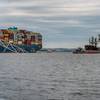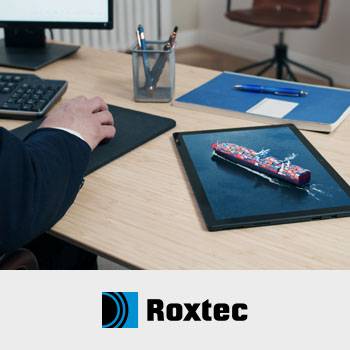As the conclusion of 1999 comes quickly and worries surrounding the unknown effects of the Y2K bug grow stronger, more maritime entities around the globe are increasing the pace of testing and compliance.
Last week, the Maritime and Port Authority of Singapore (MPA) tested the first of several drills with a shipper involving Year 2000 (Y2K) preparations. The test aboard the Neptune Orient Lines' (NOL) APL Japan, a 64,500 gt container vessel, involved the mock failure of computer-aided functions such as engines, steering mechanisms and shipboard communications.
"The objectives of the exercise were to test the preparedness of staff from the MPA and NOL, as well as the Y2K contingency plans of both organizations," MPA's Director-General Chen Tze Penn said.
The Y2K, or millennium bug problem, may cause some computers to mistake the year 2000 as 1900 from January 1 because of an old programming shortcut.
Unless fixed, it could disrupt systems from airlines to bank teller machines to power grids. Y2K readiness means updating computer codes to recognize the "00" in two-digit date fields as 2000 and not 1900.
The Port Authority of Singapore (PSA) has already spent about Singapore $2.6 million on preparing its computer systems for date change on January 1, 2000, Khong Shen Ping MPA's Director (Port Division) said aboard the APL Japan.
He added that the MPA, the wholly-owned commercial arm of the PSA which runs its maritime business, also spent around S$3 million preparing its computers for the crossover. Khong said the MPA had received assurances from its ship-to-shore communication equipment vendors that its systems were Y2K compliant, but had back-up systems in place anyway.
The MPA had also conducted drills to test Y2K preparedness in the event of ship collisions and oil spills with tanker ships, ferry operators and emergency vessels in the harbor.
The port of Singapore successfully jumped the first of the date-related computer hurdles on August 21 when the Global Positioning System (GPS) rolled its dates back to zero, Khong said. The GPS system provides navigational data from satellites 11,000 miles out in space. The next date-related hurdle occurs on September 9, 1999 when the date will read as 9999 and may freeze as the four nines were used as a cut-off code in some older computer programs. Any computer problems encountered on that date could foreshadow Y2K fiascos yet to occur.
Sponsored Content
LR - Fit for 55: Managing compliance and optimising operations

Use Roxtec seals, services and software

Subscribe for
Maritime Reporter E-News
Maritime Reporter E-News is the maritime industry's largest circulation and most authoritative ENews Service, delivered to your Email five times per week









